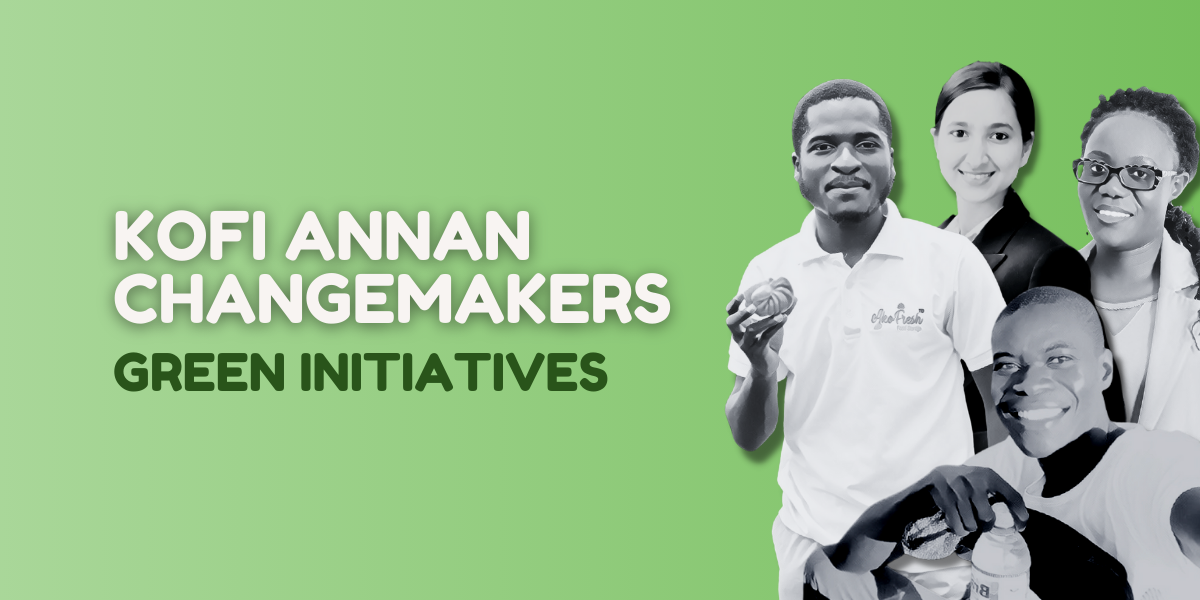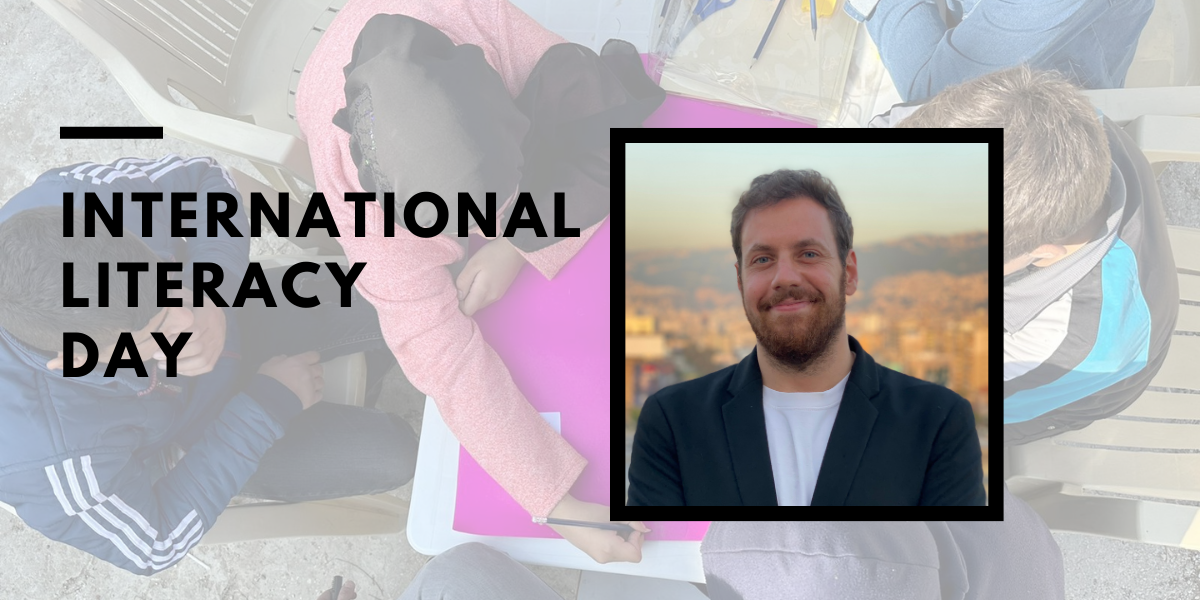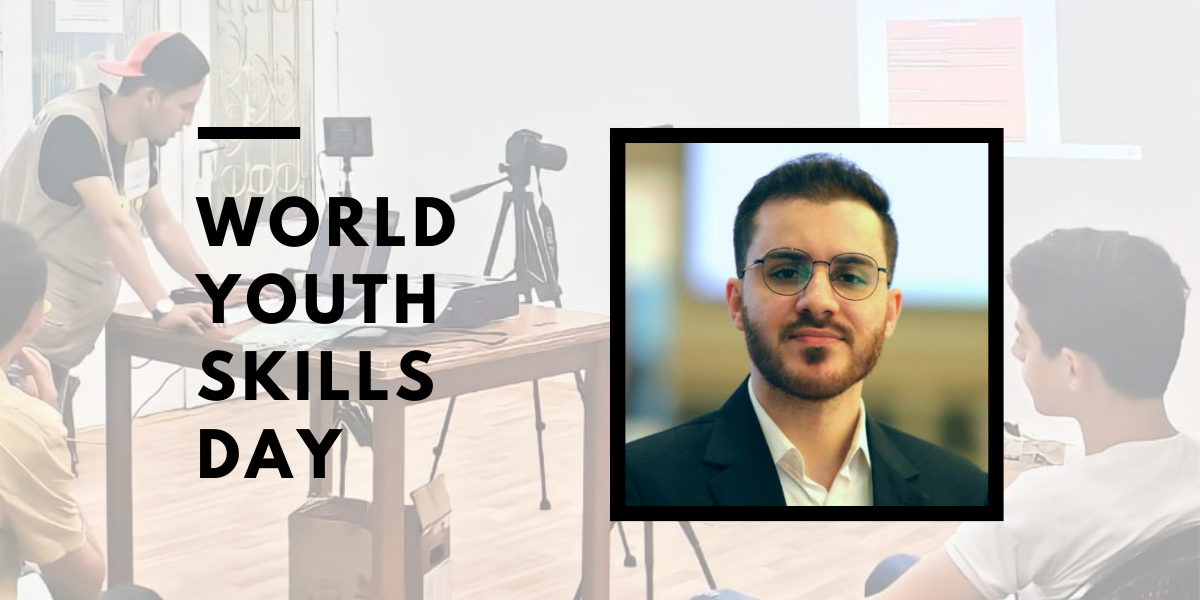Empowering Mental Health: Nojus Saad’s Tech-Powered Impact on Women and the LGBTQIA+ Community in Iraq
In honour of Pride Month, Kofi Annan Changemaker Nojus Saad sheds light on the struggle for women and the LGBTQIA+ community in Iraq. Moreover, he highlights the transformative potential of technology in addressing their mental health challenges.
‘We are all struggling’ is a widespread sentiment. Still, the struggle takes on a different scale in Iraq after four decades of constant conflict, dictatorship, terrorism, economic deprivation, and social oppression. Consequently, the mental health of women and the LGBTQIA+ community in the region is severely affected, mainly due to family violence. Despite all these challenges, there is hope as technology can play a significant role in empowering mental health for Iraq’s women and LGBTQIA+ community.
Nojus Saad – CEO of Youth For Women Foundation
About Nojus Saad
Nojus Saad, Kofi Annan Changemaker 2022 and CEO of Youth For Women Foundation, advocates for gender equality and LGBTQIA+ rights. Through his work, he drives change by harnessing digital healthcare and literacy initiatives, empowering marginalised communities. Nojus is a catalyst for progress, promoting mental and physical well-being and human rights.
The Difficulties Facing Women and the LGBTQIA+ Community in Iraq
Every day in Iraq, an estimated 46% of women and girls face a complex reality. They wake up experiencing physical, sexual, psychological, and cyber violence from a family member (Source: UNFPA Iraq). “Furthermore,” explains Saad, “any Iraqi identifying as LGBTQIA+ endures additional difficulties. Being dehumanised or disowned, the LGBTQIA+ community are at substantial risk of domestic violence, honourable killings, abductions, and sexual abuse. Their existence is threatened even online by their families, communities, and armed groups.”
In a 2022 study conducted by Youth For Women Foundation, the disturbing realities of mental health in rural Iraq were highlighted. Of 173 women surveyed across six villages, 58% reported feeling unsafe in their homes and communities. Additionally, 87% lacked awareness of available mental health services in their rural communities. As we reflect on these troubling facts, we must also consider how to bridge the knowledge gap and deliver essential mental health services where they are most needed. For women and the LGBTQIA+ community, not feeling safe, supported, or having access to mental health care can be devastating.
The Challenges with Healthcare in Iraq
“The overall state of healthcare in Iraq is shaky. The pillars – i.e., the essentials for a good healthcare system – are falling apart. The healthcare system itself is outdated. Additionally, there is a lack of psychological training for healthcare personnel,” explains Saad.
“Another issue is how Iraqi society views mental health and mental illness. There is still a social stigma around mental illness in Iraq. People are often too ashamed to seek the help they need.”
“Lastly, there is the lack of basic mental health care facilities, especially in the country’s rural, semi-urban and remote communities (Source: ReliefWeb). There is often no help nearby, no lifeline if you are struggling.”
The combination of these deteriorating pillars is a significant barrier to building an inclusive mental healthcare infrastructure and delivering life-saving psychosocial services to the millions of people living with mental disorders in the country.
To strengthen these pillars, Nojus and his Youth For Women Foundation team are leveraging technology.
How Technology Can Unlock Hope
Saad believes technology is the key to breaking down the oppression walls that isolate vulnerable women and LGBTQIA+ individuals.
“There is only one solution that can penetrate every single wall of the patriarchal and homophobic prison that separates vulnerable women and individuals from their liberation, and that is technology.” – Nojus Saad
In Iraq, the estimated 45.76 million active mobile connections and internet penetration of 74.9% (Source: DataReportAl, 2023) presents a huge opportunity. Nojus explains that the potential lies in Digital Mental Healthcare to enhance access to mental health services and improve social inclusion in the country.
One such tool is Digital Epidemiology which uses digital and social media platforms to collect essential mental health data of women and LGBTQIA+ individuals. This tool can help identify mental disorders, monitor symptoms, and offer individualised therapies on demand. “This can especially bridge the historical lack of basic community research in rural and underserved communities of Iraq,” says Saad.
Virtual Care and Personalisation with AI
Youth For Women Foundation
Nojus shares another promising approach called Teletherapy and Electronic Healthcare. “By using video consultations and telepsychiatry, we can connect specialists and caregivers with patients, no matter their location”, explains Saad. Furthermore, “the integration with Artificial Intelligence in mobile phone apps and digital modalities can enable personalised mental healthcare with natural language to alleviate the suffering of women and LGBTQIA+ individuals dealing with neglected and complex depressive disorders and stress syndromes.”
In addition to combating stigma and financial barriers, Teletherapy has the potential to revolutionise mental health access for women and LGBTQIA+ individuals, especially youth. This solution allows individuals to receive care from specialised professionals away from their community or country, where it may not be favourable to such care.
What can be done
In celebration of Pride Month, Nojus calls on us all to rally together and drive change. “Let us champion our governments and private and civil society organisations to invest in nationwide Digital Health Literacy initiatives. These programs should focus on expanding digital education, eradicating mental health stigma, and promoting the adoption of digital platforms by both patients and clinicians. By doing so, we can shed light on the pervasive struggles faced by Iraqi women and LGBTQIA+ abuse victims.”
Youth For Women Foundation’s Digital Literacy Program
An inspiring example of such an initiative is the Youth For Women Foundation’s Digital Literacy Program from 2021. This programme equipped over 75+ young people with essential digital skills and literacy. The young people involved were empowered to start fifteen virtual awareness campaigns on the topic of disinformation surrounding Covid-19 and gender justice. Their efforts positively impacted hundreds of marginalised women and LGBTQIA+ communities’ youth in rural Iraq.
The Kofi Annan Foundation is proud to count Nojus Saad as a valuable member of its network of young leaders who advocate for mental health care and inclusion.
Learn more about Nojus’s organisation, Youth For Women Foundation, an international civil society organisation headquartered in Gif-sur-Yvette, France. Their mission is to empower youth and women by advocating for national sexual reproductive health rights and gender-based violence policies. Through partnerships with leading international institutions, they strive to foster digital healthcare and literacy initiatives, and bridge the digital geographic and gender divide in rural and marginalised communities of developing countries.
About Pride Month
Celebrated in June each year, Pride Month celebrates the diversity of the lesbian, gay, bisexual, transgender and intersex community. Pride Month is a time to reflect on how far civil rights have progressed in half a century and an opportunity to protest discrimination and violence (Source: UN Youth Australia).



